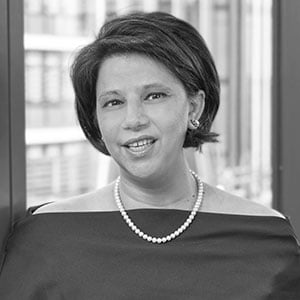I am the third generation in my family to have taken up law, following in the footsteps of my grandfather and father. My father was a partner at one of the top law firms in Mumbai and some of my best memories are of sitting in his office during school summer holidays, listening to him advising clients and watching with awe as they would listen. In my eyes no-one was smarter than my father, who clearly had the attention of every client.
I do not think there was ever any doubt in my mind of what career path I wanted to take. Perhaps, there was a flinching moment when I toyed with the idea of journalism or of veterinary science – but that was just a passing phase. I was always sure that I wanted to pursue law – have clients hang on to my every word like they did with my father.
The first day of law school also coincided with the first day of joining my father as an intern. At the time he was doing an interesting case which was the largest Indian bank scam of that time. That’s when I fell in love with disputes. I would be tasked with the important job of carrying the papers to the court every day, but that is where I watched some of the greatest intellectual minds arguing and cross-examining witnesses. It was thrilling to say the least. Hence when I came to London to pursue my LL.M, one of my main subjects was international arbitration.
If not for law, I probably would have been a travel and food journalist. I could have combined my love for travelling with my storytelling skills. I am passionate about writing, especially poetry. I love to explore new places, experience varied cultures, and taste different cuisines. I was lucky enough to take a month-long sabbatical to Antarctica in December 2023 which was the trip of a lifetime, and something that I am writing about. Luckily, with international arbitration one gets a chance to travel to different destinations and make friends all over the world.
Although I have been lucky to have been involved in some of the largest and most complex litigations and international arbitrations over the years, the most memorable case that stands out to me was saving the stray dogs of Mumbai. I was in law school when newspapers exposed the inhumane way stray dogs were being killed in Mumbai. I still had not got my practising certificate, but a colleague and I managed to convince an animal rights organisation to let us assist them without any charge in approaching the courts to stop the merciless killing. Other animal organisations also joined the movement. I was suddenly a law student with one of the largest clienteles in Mumbai. I spent days, weeks, and years working through weekends, spending my spare time drafting pleadings and approaching junior and senior barristers in Mumbai to appear for us in court. The case went all the way to the Supreme Court of India, and we were successful. The sense of achievement I got from saving innocent lives was second to none. The case taught me to pursue what I believed in, and to face challenges head on.
My managerial style is to empower and support my team to perform at its best, whilst also fostering trust, collaboration, innovation, and a positive, friendly, and open work culture. I try to involve the team in decision making since it fosters a sense of ownership and a commitment to a common vision. I am intolerant of bad behaviour – it undermines trust and a healthy culture. Ultimately, I have learnt that being intolerant of bad behaviour but providing mentoring, empathy, constructive feedback, and recognising individual contributions makes everyone feel valued and this is key in getting the best results.
What does it take to make a great disputes lawyer? Hard work! Hard work! Hard work! That is the mantra, and there is absolutely no substitute. Besides hard work, one also requires a combination of legal knowledge, analytical and communication skills, attention to detail, and a strategic mind. One needs to always maintain a high ethical standard and integrity. Disputes can be emotionally and mentally taxing so one needs to have the patience and resilience to manage pressure including a lot of late nights. Most importantly, one needs to have a mentor, without which it is exceedingly difficult to succeed.
The legal disputes industry is likely to become more dynamic, driven by technological innovation, changing societal expectations, and emerging legal challenges. Given the globalisation of businesses, we will see an increase in the complexity of cross-border disputes. There will be greater demand for lawyers specialising in niche areas such as international arbitration and a growing emphasis on ADR methods to save time, costs, and resources.
When I’m not at work, I’m travelling, cooking, trying out different cuisines and restaurants and sharing a glass or two of wine with family and friends.
My biggest inspirations within the law are my father and my husband and outside the law, my mother. Together but in different ways they are my north, my south, my east and west, my working week and my Sunday rest. I could not ask for a better friend, philosopher and guide and I owe them everything.
Sherina Petit, head of international arbitration and head of India practice, Stewarts
